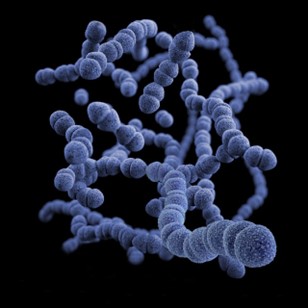The human body is packed with trillions of fungi, bacteria, and viruses. Together, they make up a microbiome in every person. Those living inside the cecum (a part of the large intestine) are known as the gut microbiome — a collective containing as many as 1,000 bacteria species that are vital for one’s health.
Alice Chang, PHD notes that the gut microbiome is so important that it functions as if it were another organ! It even weighs the same as the brain, clocking in at two to five pounds. Without microbes, humans would cease to be.
The Importance of the Gut
From the moment a person is born, the gut microbiome begins working. Although, new evidence shows that they may have an impact even earlier, while inside the womb.
As people grow, the gut microbiomes diversify, containing more species. The more diverse the microbiome, the better for the body, as it plays an integral part in several functions, including:
Immune System
The immune system is an intricate network of organs, tissues, and cells that work together to battle invaders and heal damage.
When the body starts an immune response, it’s dubbed “acute inflammation” and is critical for recovery. However, the body may continue activating an immune response without there being any damage to repair, increasing the individual’s chance of developing diseases (e.g., ulcerative colitis, Crohn’s disease, etc.).
Emerging research shows the gut microbiome is an integral part of a healthy response. It communicates with immune cells to control the body’s actions when faced with infection.
Brain Health
Despite its seemingly non-existent connection, the gut microbiome actually impacts the brain in many ways, including:
- Producing chemicals called neurotransmitters, such as serotonin
- Controlling messages sent to the brain through nerves
- Dictating whether a person has various psychological disorders
Weight
Even though there are thousands of healthy bacteria in the intestines, unhealthy species exist as well. Having too many of the latter can also cause disease.
The imbalance of unhealthy/healthy microbes in the gut is called gut dysbiosis, which leads to weight gain.
Several studies have shown that the gut microbiome differed entirely in pairs of identical twins, one of whom was the recommended weight and one of whom had obesity.

How to Improve Gut Health
Since the gut microbiome heavily influences most major bodily functions, maintaining and improving its health should be near the top of people’s agendas. Experts say the tips below are the best methods:
Avoid Sugar and Processed Foods
Fast-digesting sugars (a.k.a., Monnosaccharides) are digested rapidly, meaning the gut microbes don’t have enough time to work with them. Eating too many sugars on a regular basis runs the risk of starving the microbiome, causing them to start nibbling their way through the intestine itself.
Eat Vegetables
Vegetables are packed with fiber — something the bacterium in the gut adores. Those who follow a diet filled with fruits and vegetables are less likely to harbor disease-causing bacteria.
The best vegetables for microbes are leeks, artichokes, spinach, broccoli, onions, and asparagus.
Indulge In Fermented Foods
Fermented foods, like yogurt, kombucha, sauerkraut, and kimchi, are rich in lactobacilli, a bacteria species that lives in the gut microbiome.
These foods prevent the growth of Enterobacteriacae, which is associated with a range of chronic conditions and inflammation.
